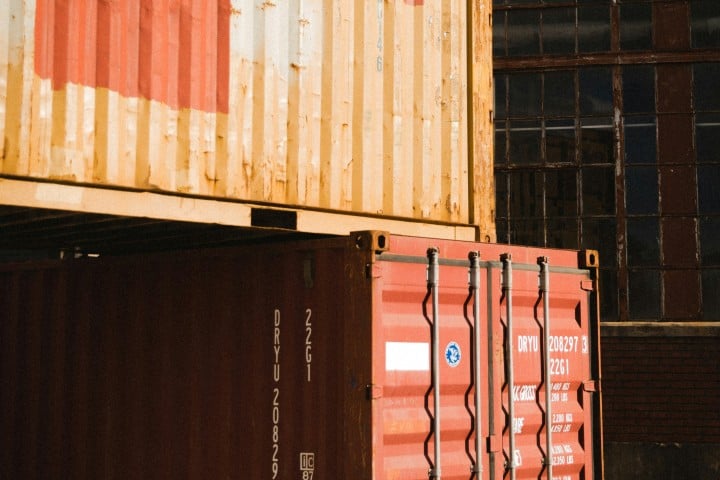Every year, thousands of expats relocate without ever setting foot in their new homes until moving day. That’s not just bold—it’s logistically brutal. If you’re already abroad, planning a long-distance move from your laptop feels like directing an orchestra from another continent. How do you manage time zones, customs documents, packing crews, and property viewings remotely—without losing your mind or your belongings? Here’s how to turn chaos into strategy, especially if you’re working with a moving company in Vienna or anywhere across Europe.

Build a Local Strategy Before You Ship
Relocating internationally while already abroad is like trying to cook dinner while grocery shopping. You’re juggling two timelines, two addresses, and often two currencies. Before doing anything else, you need boots on the ground.
Start with your exit strategy. Who’s packing up your belongings? Who’s overseeing the movers? Identify a trustworthy point of contact in your departure city—friend, neighbor, landlord, or local relocation agent. Make sure they have physical access to your property, keys, and know-how to coordinate in your absence. Then, book a professional moving service that’s experienced in remote coordination. If your relocation starts in Austria, for instance, working with a seasoned moving company in Vienna can make all the difference. These firms often know the ins and outs of customs paperwork, international logistics, and local bureaucracy—a lifesaver when you’re managing from 5,000 miles away.
Document Everything, Even the Obvious
When you’re remote, paperwork becomes your currency of control. Keep every email, invoice, receipt, and customs document neatly stored in the cloud. Create folders by category: “Shipping Documents,” “Property Access,” “Insurance,” “Packing Inventory.”
Every item in your home should be accounted for. Label boxes digitally, using spreadsheets or shared docs your movers can update on-site. Don’t rely on handwritten labels you’ll never see. Include photographs when possible—especially for high-value or sentimental items.
Decide on one communication platform and stick to it. Whether it’s WhatsApp, Signal, Slack, or good old-fashioned email—consistency saves time. Group messages with all parties involved: your movers, landlord, point of contact, and shipping provider. This eliminates miscommunications and keeps timelines transparent.
Think Beyond the Boxes
A move isn’t just stuff changing addresses. It’s visa renewals, bank transfers, school paperwork, new SIM cards, and switching time zones. When you’re managing this from afar, those details sneak up fast.
Create a life-logistics checklist: healthcare, legal docs, financial institutions, kids’ enrollment forms. Assign deadlines two weeks ahead of the actual move. That cushion absorbs delays, which will happen. Make space for tasks like forwarding mail, canceling local subscriptions, or translating key documents—especially if you’re leaving a non-English-speaking country like Austria. Don’t forget to notify tax authorities, update voter registration (if applicable), and confirm cancellation of utilities with final meter readings. Small oversights here can lead to costly consequences later.
Get Smart With Storage and Shipping
Remote relocations require flexibility. Maybe your visa gets delayed, or housing falls through. That’s why secure storage is essential—both on the sending and receiving end. Speak to your movers about contingency storage and insurance options. Clarify whether your belongings can be held without penalty, and for how long, without incurring additional fees. Ensure the storage facility is climate-controlled, secure, and accessible in case of sudden changes.
When booking international freight, ask questions you never thought you’d need to: Can your belongings arrive in multiple shipments? Can they be redirected if your address changes? Will someone be on-site for customs clearance? What happens if items are damaged during inspection? Is there real-time tracking available? A good logistics partner will have these answers ready—and will help you prepare for the unexpected with calm, clarity, and professionalism.
Know When to Delegate and Let Go
Even the most organized plan can unravel—especially when it crosses borders and time zones. That’s why knowing when to delegate is part of staying sane. Whether it’s a relocation consultant, a trusted friend, or a family member, designate someone who can make decisions when you’re asleep or out of signal range.
Pack a digital folder titled “Urgent Contact Info.” Include key phone numbers, contract details, passport scans, and a short note on your preferences (e.g., “Donate items if storage costs exceed $X”). Add copies of your visa, insurance documents, and customs forms. Make sure your delegate has access to these files via cloud storage and knows where physical backups are kept. That small prep step can save thousands—and your peace of mind.
We hope you found this blog post on How to Manage Your International Move Without Losing Control, useful. Be sure to check out our post on Choosing the Right Shipping Solution for Your Next Move for more great tips!
Have Experience in the Moving Industry? Want an Additional Income Stream? Work With All Around Moving!
Team up with us today, you, the experienced moving relocation experienced sale rep.! There are no recurring expenses, except purchasing your own leads. All profits shared 50-50% with you from all jobs booked with us. Click here to learn more.





